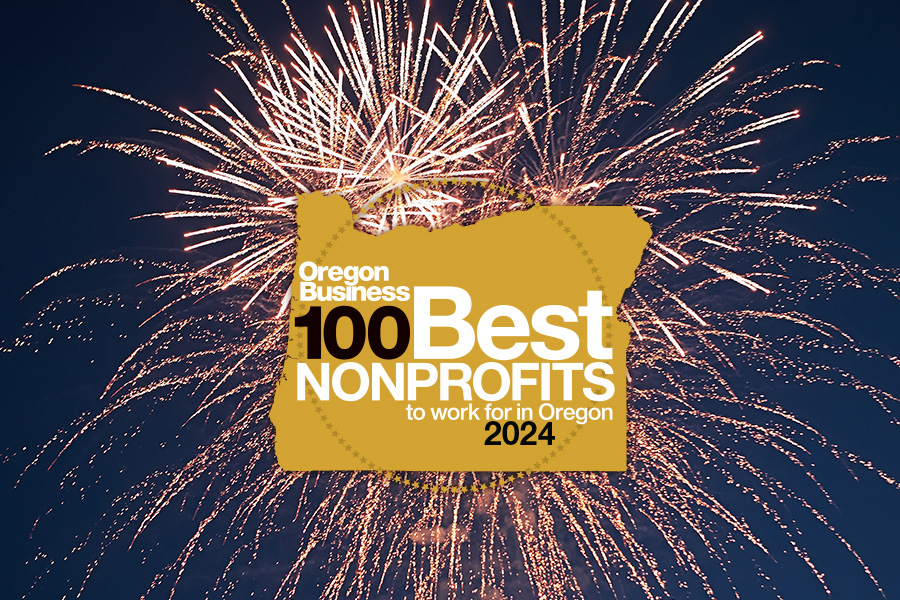If the past 40 years have taught us anything, it’s that HR is always evolving.
From paper files to digital systems, from personnel departments to strategic HR organization partners, from administrative oversight to a critical leadership function—HR has transformed dramatically. And the changes aren’t slowing down anytime soon.
As we celebrate 40 years of HR Answers, we’re asking an important question: What does the future of HR look like? What challenges will HR professionals face, and how can organizations prepare for the next wave of workplace transformation?
Let’s explore what’s ahead and what HR professionals need to know to stay ahead of the curve.
Trend #1: The Rise of AI and Automation in HR
Technology has already revolutionized HR. Artificial intelligence (AI) and automation are about to take it even further.
We’re already seeing AI-driven recruitment tools that scan resumes and automate employee engagement surveys that analyze sentiment.
What This Means for HR Professionals:
- HR teams will spend less time on administrative tasks and more time on strategy, culture, and employee engagement.
- AI will assist—not replace—HR professionals. The human element of HR will remain essential.
- HR leaders must embrace data to drive decisions and prove HR’s value to the organization.
The takeaway? The future of HR isn’t about replacing people with technology—it’s about using technology to enhance what people do best.
Trend #2: Workplace Flexibility
The traditional 9-to-5 office model is disappearing. Remote work, hybrid schedules, and flexible work arrangements are now expected by many employees.
Companies that resist flexibility are finding it harder to attract and retain top talent. Employees want autonomy, balance, and trust from their employers.
What This Means for HR Professionals:
- Rigid policies need to go. HR must lead the way in creating flexible work policies that still support productivity and accountability.
- Engagement strategies must evolve. Remote employees need new ways to connect, feel included, and grow professionally.
- Trust and results matter more than office hours. HR will need to help leaders focus on performance and outcomes, rather than just hours logged.
The takeaway? The workplace of the future is wherever employees do their best work—and HR must help organizations adapt. This is not to say that all work can be done remotely. We are saying you need to critically analyze the options.
Trend #3: A Continued Focus on Employee Well-Being and Mental Health
Employee well-being is no longer an afterthought—it’s an organization priority. Organizations that fail to support mental health, balance, and overall well-being will struggle with burnout, turnover, and disengagement (that is not a new fact).
What This Means for HR Professionals:
- HR must continue to integrate well-being into organization culture, including leadership training, workload management, and clear, measured, workplace expectations.
- Companies will need better resources for mental health support – including counseling services and stress management training.
- HR will have to educate and re-educate leaders on how to support employees holistically, ensuring well-being isn’t just a buzzword—it’s a key part of organizational strategy.
The takeaway? Happy, healthy employees perform better, stay longer, and contribute more. HR must take the lead in making well-being a priority.
Trend #4: Diversity, Equity, and Inclusion (DEI) – a Commitment to Every Human
Diversity, Equity, and Inclusion (DEI) has been a major focus in HR over the past decade. DEI isn’t about favoring one group over another—it’s about ensuring fairness, opportunity, and respect for every employee, regardless of their background.
True DEI isn’t a checklist, a compliance exercise, or a series of special programs for specific groups. It’s about building workplace systems and cultures where every employee—regardless of race, gender, age, ability, belief, or background—has equal access to opportunity, fair treatment, and a workplace that values their contributions.
As DEI continues to evolve, HR professionals must remain vigilant in how they implement DEI within their organizations and monitoring changes at the federal and state levels that impact employment practices are in strong debate.
What This Means for HR Professionals:
- Ensure Policies Promote Fairness for All. HR should focus on removing barriers that prevent equal access to opportunities for everyone rather than implementing policies that appear to benefit some at the expense of others. Fairness should be at the heart of all hiring, promotion, compensation, and workplace policies.
- Foster Inclusive Cultures, Not Just Programs. An organization doesn’t need a special initiative for every identity group; rather, it needs a workplace culture that values every employee equally. Inclusion should be a standard practice, not a separate initiative.
- Stay Informed on Legal and Regulatory Changes. HR professionals must be aware of new requirements, compliance risks, and legal shifts. Some states are enacting laws restricting certain DEI practices, while others are expanding their requirements. HR teams must analyze these changes carefully and adapt accordingly.
- Measure and Adjust Thoughtfully. Metrics can be useful for understanding workplace trends, and they should be used to assess equity and fairness across the organization. The goal is to ensure every individual is treated with respect and given a fair chance to grow and succeed.
The Takeaway?
DEI should never be about checking a box—it is a long-term commitment to workplace excellence benefiting every employee. The best organizations recognize that a culture of respect, fairness, and inclusion leads to stronger organization performance, higher engagement, and a thriving workforce.
As the national conversation around DEI continues to raise questions and, let’s face it, cause confusion, HR professionals must stay informed, ensure policies reflect fairness for all, and focus on equity and opportunity for every human.
How HR Answers Is Preparing for the Future
At HR Answers, we don’t just keep up with HR trends—we help shape them. As we celebrate 40 years, we’re more committed than ever to:
- Providing cutting-edge training and resources to help HR professionals stay ahead.
- Offering coaching and consulting to help organizations navigate workplace changes.
- Supporting HR pros in growing their strategic influence and leadership skills.
- Partnering with organizations to build better, more inclusive workplaces.
What’s Next?
The future of HR is exciting, complex, and full of opportunity. The question is: Are you ready for it?
At HR Answers, we’re here to help you navigate what’s next—whether that means adopting new technologies, strengthening your leadership skills, or reimagining your workplace culture.
Let’s shape the future of HR together.
Stay tuned for next month’s post: “HR Superpowers: What It Takes to Succeed in the Next Era”—where we’ll break down the essential skills HR professionals need to thrive in the future workplace.








